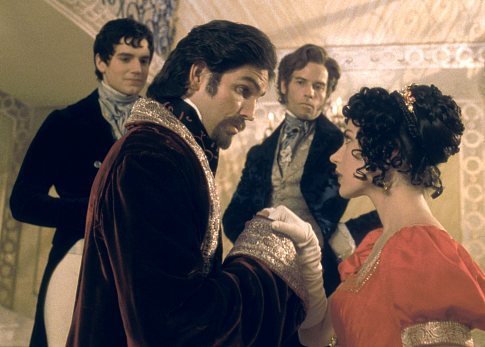I am often asked what types of books I enjoy reading, what was the last book I read, what is my favorite novel, or something along that line. The answers usually range from, yes I do enjoy reading and most of the time it is something from the non-fiction realm, but for a while now I find myself digesting news articles at a glutenous pace. However, I do have a favorite novel (of all time), The Count of Monte Cristo by Alexander Dumas.
The novel is an adventure story primarily concerned with themes of hope, justice, vengeance, mercy, and forgiveness. It focuses on a man (Edmund Dantes) who is wrongfully imprisoned, escapes from jail, acquires a fortune, and sets about getting revenge on those responsible for his imprisonment. His use of an alter ego, the Count of Monte Cristo, allows him to weave a web of manipulation and get close enough to his enemies to enact his revenge. However, his plans have devastating consequences for the innocent as well as the guilty. Not to spoil the book (or for those more inclined to watch the movie) Dantes eventually finds peace through revenge and more importantly, revealing his true identity.
Now, I bring up this book today because it reminds me of the Joseph story. How he was sold into slavery, eventually came into power, had the ability to seek revenge on his brothers, but instead reveals himself and finds peace much like Dantes. This week’s parsha, Vayigash, is the climax of the Joseph story. Judah approaches Joseph and pleads to take Benjamin’s place as a slave. He tells the Egyptian Vizier that his father Jacob could not bear to lose Benjamin having already lost Joseph. Judah recounts the conversation he had with Jacob prior to leaving Canaan…
Jacob Says, “As you know, my wife bore me two sons. But one is gone from me, and I said: Alas, he was torn by a beast! And I have not seen him since. If you take this one from me, too, and he meets with disaster, you will send my white head down to Sheol in sorrow.”
Judah continues to beg saying…
Now your servant has pledged himself for the boy to my father, saying, ‘If I do not bring him back to you, I shall stand guilty before my father forever.’ Therefore, please let your servant remain as a slave to my lord instead of the boy, and let the boy go back with his brothers. For how can I go back to my father unless the boy is with me? Let me not be witness to the woe that would overtake my father!”
Joseph was so taken by what his brother was willing to do for Benjamin he sends his servants away and makes his big reveal. “I am Joseph. Is my father still well?” The brothers are so dumbfounded they couldn’t even answer. Joseph had to bring them in closer to explain who he was and most importantly that he bore no grudge against them. He was sent by God to Egypt to save them and instructs his brothers to go and bring Jacob back with them to Egypt.
As I read through this week’s parsha, I wonder about the range of emotions in the room. How much courage did it take Joseph to reveal himself? Was he concerned that his brothers may still hold the same grudge that caused him to be sold into slavery? And what about the feelings that Judah was coping with confronting the Egyptian Vizier trying to save his youngest brother? I could imagine how much anxiety I would feel having an issue with my brothers for over 20 years and then having to confront them on it finally. Rabbi Samuel Nachmani points out that Joseph acted with great sensitivity and wisdom. He did not fear his brothers because he knew they regretted what they did to him and saw how they feared for the well-being of Benjamin and their father. Another scholar adds that Joseph sent his servants away so as not to embarrass his brothers. Joseph, who had every chance to seek his revenge, acted with grace.
Having turned over a new leaf, Judah confronts the Grand Vizier of Egypt. He has witnessed his father’s suffering and was unwilling to put him through any additional pain. We are taught in the Babylonian Talmud, that true t’shuvah, “repentance,” is having the opportunity to commit the same sin again and refraining from doing so. It is clear that Judah performs true t’shuvah when he is once more given the opportunity to send the favored brother into slavery and refuses.
We are not different from Joseph, Judah, or even Edmund Dantes. It takes time to heal wounds and make peace. Both stories offer us the hope that even in the darkest times of our lives there can be reconciliation and healing. It reminds us that we should not wait to experience our own pain before we empathize with the pain of those around us. Every day brings a new opportunity to apologize to those whom we have hurt, to right our wrongs, and to change and become better people (than we were before).

